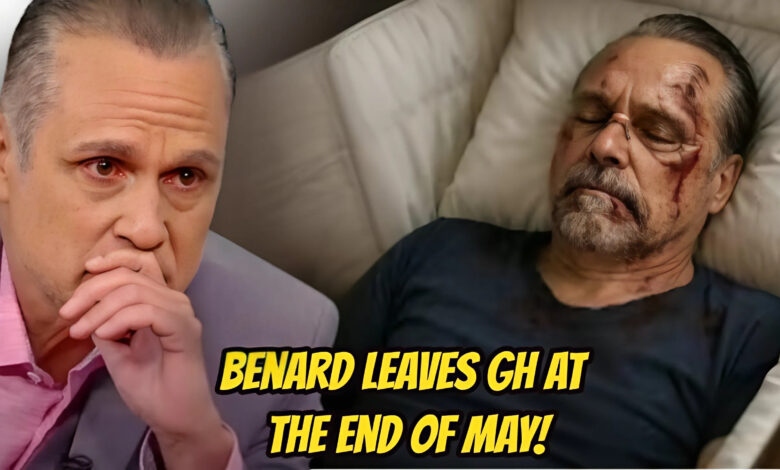After more than three decades embodying one of daytime television’s most iconic characters, Maurice Benard may be approaching the end of his journey on General Hospital. His portrayal of mob boss Sonny Corinthos has become a foundational pillar of the soap, and recent developments on-screen have ignited widespread speculation among fans and industry watchers alike. With a dramatic heart surgery storyline unfolding and Benard’s own public discussion of mental health and retirement, fiction and reality are intersecting in a way that suggests a significant chapter may be closing.
Benard’s portrayal of Sonny has always extended beyond scripted drama. Since joining General Hospital in 1993, his performance has drawn deeply from personal experience—most notably, his ongoing battle with bipolar disorder. Sonny’s intense mood swings, moments of vulnerability, and fierce loyalty resonate with viewers because they reflect Benard’s own lived challenges. The character’s evolution from ruthless crime lord to complex protector closely parallels Benard’s transformation as both an actor and mental health advocate.
Benard’s openness about his condition—sharing insights into therapy, medication, and self-discipline—has contributed to broader awareness of mental health issues. This authenticity has not only shaped his character’s emotional depth but also reinforced his connection with the audience.
Retirement Rumors Resurface
Rumblings of Benard’s potential departure have circulated for years, often tied to his candid remarks in interviews about stepping back to prioritize family and personal well-being. Despite these hints, he has consistently returned with renewed energy, delivering high-impact performances that reinforced his centrality to the show.
Now, with Sonny facing a life-threatening heart condition on-screen, the narrative stakes are higher than ever. The looming surgery could serve as a narrative exit strategy—one that offers closure while honoring both character and actor.

A Legacy Woven Into Port Charles
As Sonny’s health crisis escalates, the implications ripple across Port Charles. Longtime characters such as Carly Spencer and Jason Morgan could rise to fill the void, while emerging figures like Jocelyn Jax and Spencer Cassadine may see their storylines fast-tracked in the absence of the mob patriarch.
The character’s influence is deeply embedded in the show’s structure. Whether negotiating with law enforcement or shielding his family from threats, Sonny has always walked the line between villain and hero. His unique moral code—respected even by adversaries—has redefined what it means to be an antihero in daytime television.
Social Media Response and Fan Reactions
The GH fanbase has responded with a mix of grief and celebration. Hashtags like #SaveSonny and #NeverSayGoodbye have gained traction, and fans are vocal in their pleas for Benard to remain. Some propose off-screen retirement scenarios that allow the character to live on quietly, while others argue no recast could capture the essence of the original.
Tributes highlight key moments from Benard’s tenure—from his Emmy-winning performance in 2003 to emotionally charged confrontations and redemptive arcs. Viewers have not only followed Sonny’s fictional journey but also seen reflections of their own experiences in his struggles and triumphs.
Behind the Scenes: Planning the Transition
Reports suggest that General Hospital producers and writers are working closely with Benard to shape a storyline that respects both his career and his health. Depending on his personal decision, options range from a temporary absence to a permanent retirement arc. Each outcome is being crafted to maintain narrative integrity and provide fans with meaningful closure.

The show’s integration of Benard’s real-life bipolar journey into Sonny’s heart condition underscores a larger thematic point: that physical and mental health are intertwined, and that inner battles can be as formidable as external ones.
Looking Ahead: The End of an Era
The potential departure of Maurice Benard marks more than just the exit of a character—it signals a transformation for General Hospital itself. As the show prepares for a future without its long-standing centerpiece, it must recalibrate its storytelling, redistributing power dynamics and emotional weight among other players.
Yet, Sonny’s presence will remain—through the relationships he shaped, the legacy he leaves behind, and the impact of Benard’s advocacy. Whether he exits the stage through dramatic finality or quiet retreat, his contributions to both the series and the broader discourse on mental health are indelible.
In the evolving world of General Hospital, new stories will emerge, and new heroes will rise. But the space left by Sonny Corinthos—a space forged over 32 years of nuanced performance—will never be fully filled.





